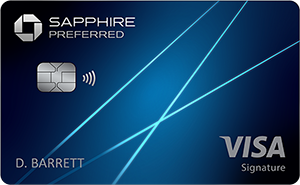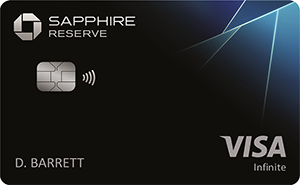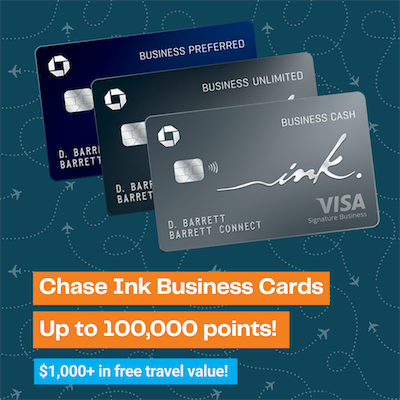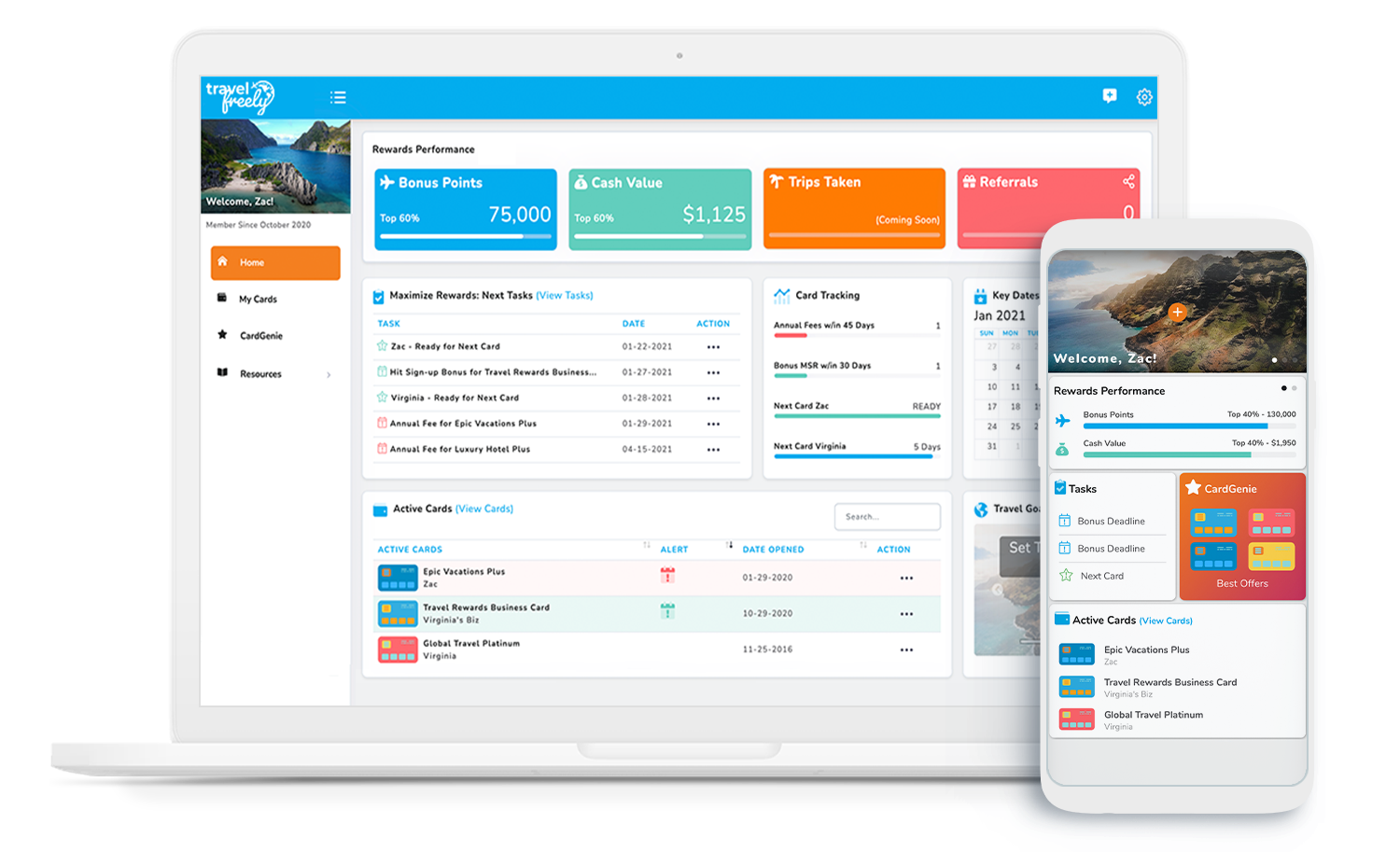The Chase Sapphire Preferred and Chase Sapphire Reserve are easily two of the best card options you can invest in towards your free travel goals. Both cards offer big value, earning you thousands of points in a short period of time that you can easily transfer to 14 travel partners via Chase Ultimate Rewards points.
Regardless of your choice between the Chase Sapphire Preferred and Chase Sapphire Reserve, both cards offer great value, but with a slight difference depending on who’s using it and how they’re using it. Because Chase rules only allow you to have one or the other, it is important to decide which one is right for you.
So if you are looking to choose only one card out of these two options, we’ve broken down both cards in terms of annual fees, sign up bonuses, credits, earnings and more to give you a deeper insight on which card best fits your needs.
Great choice for a frequent traveler, but note the large annual fee. If you're starting out or not going to travel frequently in the coming year, you might want to instead consider the Chase Sapphire Preferred.
Chase Travel℠ Portal Redemption Value
The easiest way to redeem Chase points is in the Chase travel portal. For the Chase Sapphire Preferred, you can redeem points at 1.25 cents per point. However, the Chase Sapphire Reserve is slightly higher at 1.5 cents per point. But remember, points transfer to the 14 travel partners at the same 1-to-1 ratio.
Winner for this round: Sapphire Reserve.
Annual Fees
The most notable difference between the Chase Sapphire Preferred and Chase Sapphire Reserve is the annual fee costs.
While the Chase Sapphire Preferred only charges an annual fee of $95, the Chase Sapphire Reserve charges an annual fee of $550 (which is $445 more expensive). Both fees are not waived during the first year so the $550 investment you’ll make on the Chase Sapphire Reserve might be considered heavy.
Winner for this round: The Chase Sapphire Preferred
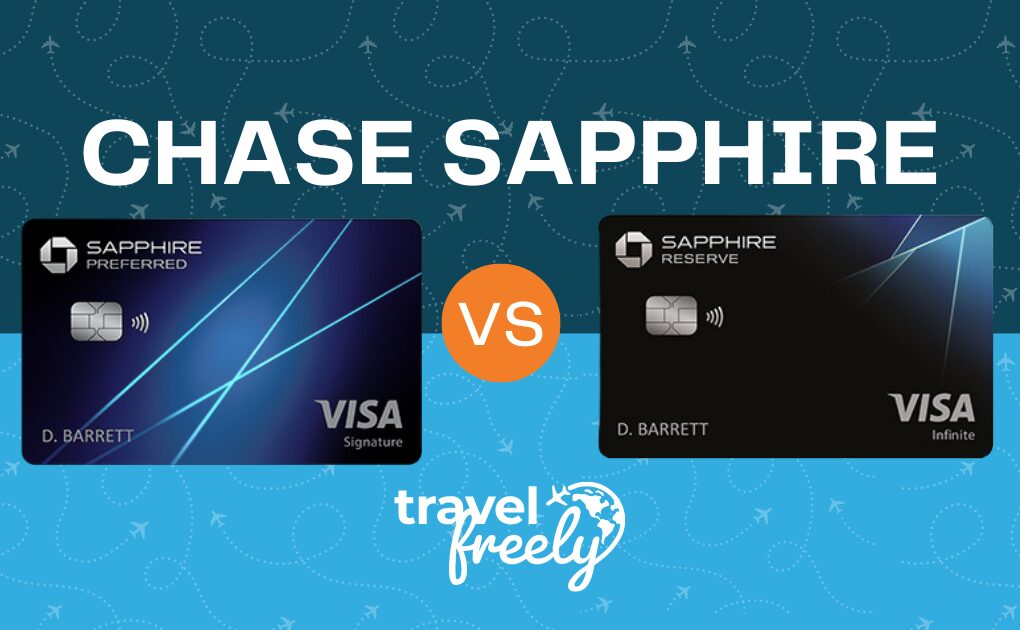
Annual Credits
The Chase Sapphire Reserve offers more credits when compared to the Chase Sapphire Preferred, which can be quite a game-changer. Despite that hefty $550 annual fee, the Chase Sapphire Reserve does offer a $300 annual travel credit, which cardholders can directly enjoy towards all travel expenses from airlines to hotels and even Uber. This $300 credit easily offsets a good portion of the $550 annual fee, which makes it only $155 more expensive than the the Chase Sapphire Preferred Card.
In addition, the Chase Sapphire Reserve also provides an up to $100 credit that can go towards a Global Entry, TSA PreCheck or NEXUS application fee — once every four years. (Note: This benefit will increase to $120 on Oct. 1, 2024 to cover the cost of the Global Entry fee increasing). Being a Chase Sapphire Reserve cardholder, you also have a complimentary Priority Pass Select membership which gives access to 1,500+ lounges in more than 500 airports around the world. As long as you are a Chase Sapphire Reserve holder, you can use the lounges regardless of the airline you are flying, your ticket class or your membership in any club.
Those with the Chase Sapphire Reserve will also have access to the fairly new Chase Sapphire Lounges (currently located in Boston, Austin, LaGuardia, JFK, Dulles and Hong Kong). Access is eligible to the cardmember (once linking their card to a complimentary Priority Pass membership) and two guests.
Winner for this round: The Chase Sapphire Reserve
Extra Points Earning
When it comes to earning points, there is also a considerable difference between the Chase Sapphire Preferred and the Chase Sapphire Reserve.
With the Chase Sapphire Preferred, you can earn 3x the points per dollar spent on all dining (including takeout and delivery), online grocery purchases (excluding Target, Walmart and wholesale clubs) and select streaming services, 2x points on travel-related expenses and 1x points on all other purchases. However, with the Chase Sapphire Reserve, you can earn 3x points for dining (including takeout and delivery and travel (after the first $300 is spent on travel purchases annually), and 1x point on everything else.
Additionally, with the Chase Sapphire Preferred, you’ll earn 5x total points on travel purchased through Chase Travel. With the Chase Sapphire Reserve, you’ll earn 5x total points on flights purchased through Chase travel and 10x total points on hotels and car rentals purchased through Chase Travel.
This puts the Chase Sapphire Reserve card at an advantage, especially for members who spend more on travel.
Winner for this round: The Chase Sapphire Reserve
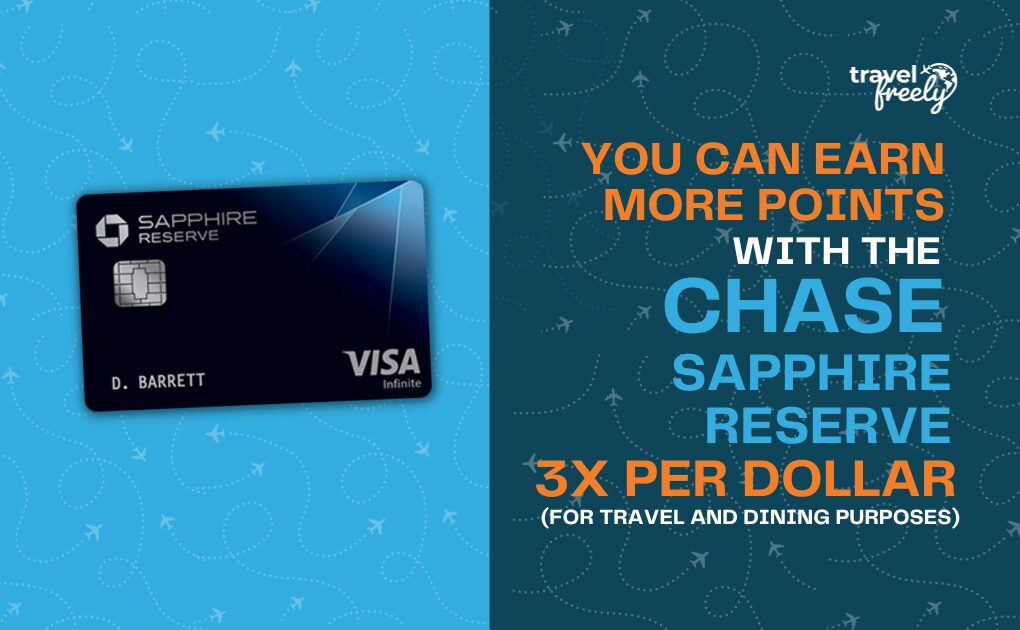
Authorized Users
When you wish to add additional authorized users to your account, the Chase Sapphire Preferred requires no additional fees to do so; however, the Chase Sapphire Reserve charges a fee of $75 per authorized user. There are no bonus points when adding an authorized user, but the only notable benefit that you get is the additional points you earn when they use their cards for spending.
Of the two, however, the Chase Sapphire Reserve does offer an added benefit of a Priority Pass Select Card for every authorized user, which gives access to an independent program offering the same exact lounge access as the primary member.
Winner for this round: It’s a tie!
Chase Sapphire Preferred vs. Reserve - Breakdown
| Chase Sapphire Preferred | Chase Sapphire Reserve | |
|---|---|---|
| Sign Up Bonus | 60,000 points when you spend $4,000 in your first three months. | 60,000 points when you spend $4,000 in your first three months. |
| Value | $750 in travel credit when you redeem points via Chase Ultimate Rewards. Get more value through transfer partners. | $900 in travel credit when you redeem points via Chase Ultimate Rewards. Get more value through transfer partners. |
| Annual Fees | $95/year | $550/year |
| Annual Travel Credits | $50 annual hotel credit, earn 10% of your points back each anniversary year | $300/year |
| Other Credits or Benefits | None | $100 every 5 years for Global Entry Applications, $85 for TSA PreCheck Applications |
| Priority Pass Select Membership - offers lounge access to more than 1000 locations (across 500 cities) worldwide | ||
| Earning Rate | 5x points per dollar for all travel booked through Chase Travel℠ portal, 5x on Lyft, 3x on all dining, 3x on online groceries (excluding Target, Walmart and wholesale clubs), 3x on select streaming services, 2x on all other travel purchases, 1x points per dollar for other expenses | 10x on Chase Dining, 10x on hotel and car travel booked through Chase Travel℠ portal, 10x on Lyft, 5x on flights booked through Chase portal, 3x points per dollar for all other travel and dining expenses, 1x points per dollar for other expenses |
| Points Redemption via Chase Ultimate Rewards Travel Portal | 1 point = 1.25 cents | 1 point = 1.5 cents |
| Authorized Users | Free | $75 per user |
| Benefits for Authorized Users | None | Priority Pass Select Membership - offers lounge access to more than 1000 locations (across 500 cities) worldwide |
Final thoughts
From our breakdown, it’s easy to see that there isn’t a clear decision to be made here — whether or not the Chase Sapphire Preferred is best or the Chase Sapphire Reserve is best. Both cards offer great value and, as we said earlier, it depends on who’s using it and how they’re using it.
Why Chase Sapphire Preferred is Best
The Chase Sapphire Preferred is best for those who are still getting their feet wet when it comes to free travel. This is a great card to start with as it offers you a lower annual fee, but gives you the guarantee of valuable points and free travel options. So if you’re looking for the best overall card without a huge annual fee, then this card is the right one for you.
Why Chase Sapphire Reserve is Best
On the other hand, if you’re frequently moving from one place to the next or engaged in numerous hours of travel every week or every month, then the Chase Sapphire Reserve suits you best. Your travel habits coupled with how frequently you use your card for travel purchases will guarantee you the chance to earn more points given the 3x earning rate that the card offers. This will bring you better value for your money and will quickly offset the $550 annual fee investment that you put into the card (which is also offset by the $300 travel credits you get annually).
Great choice for a frequent traveler, but note the large annual fee. If you're starting out or not going to travel frequently in the coming year, you might want to instead consider the Chase Sapphire Preferred.

